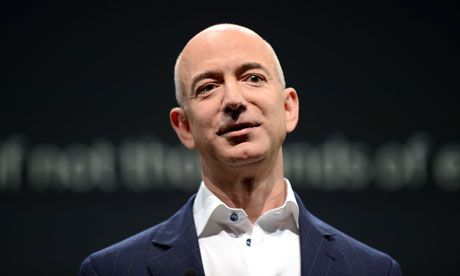
After more than a year of debate, US district judge Denise Cote handed down a ruling this month in the case of United States of America v Apple Inc, otherwise known as the ebooks pricing case. The US Justice Department accused Apple of conspiring with the big five publishers, and the judge agreed, calling it a "brilliant scheme" to raise ebook prices. This was "agency pricing": because Apple allowed publishers to set their own prices for ebooks on its devices, publishers could justify imposing the same model on Amazon – which was always the real target of the whole business.
Terrified of Amazon's growing power in the book industry (at one point it had cornered up to 90% of the ebook market, a segment which will only grow; though it is now thought to have around 65%), publishers were prepared to do pretty much anything to protect themselves, their negotiating power and their bottom line. Well, when I say anything, I mean they were prepared to flirt with anti-trust law and conspire among themselves to raise prices. What they weren't prepared to do was innovate or work for the benefit of their readers.
The literature industry's fear of technology is what really sits at the centre of this debate. There have always been two complementary and effective ways of countering Amazon's dominance, and neither has been taken up in the (English-speaking) publishing world: these are investing in building national ebook stores, as has been done in France, Germany, Scandinavia and elsewhere; and relaxing the ferocious demands of Digital Rights Management, which make purchasing an ebook from anyone but "verticals" like Amazon and Kobo a virtual misery.
While it's bizarre that publishers can conspire to break the law but can't agree to finance a bookshop, it's plain depressing that they can't trust the evidence on piracy and other straw men, trust their readers, and work together to build a better ebook system for everyone.

